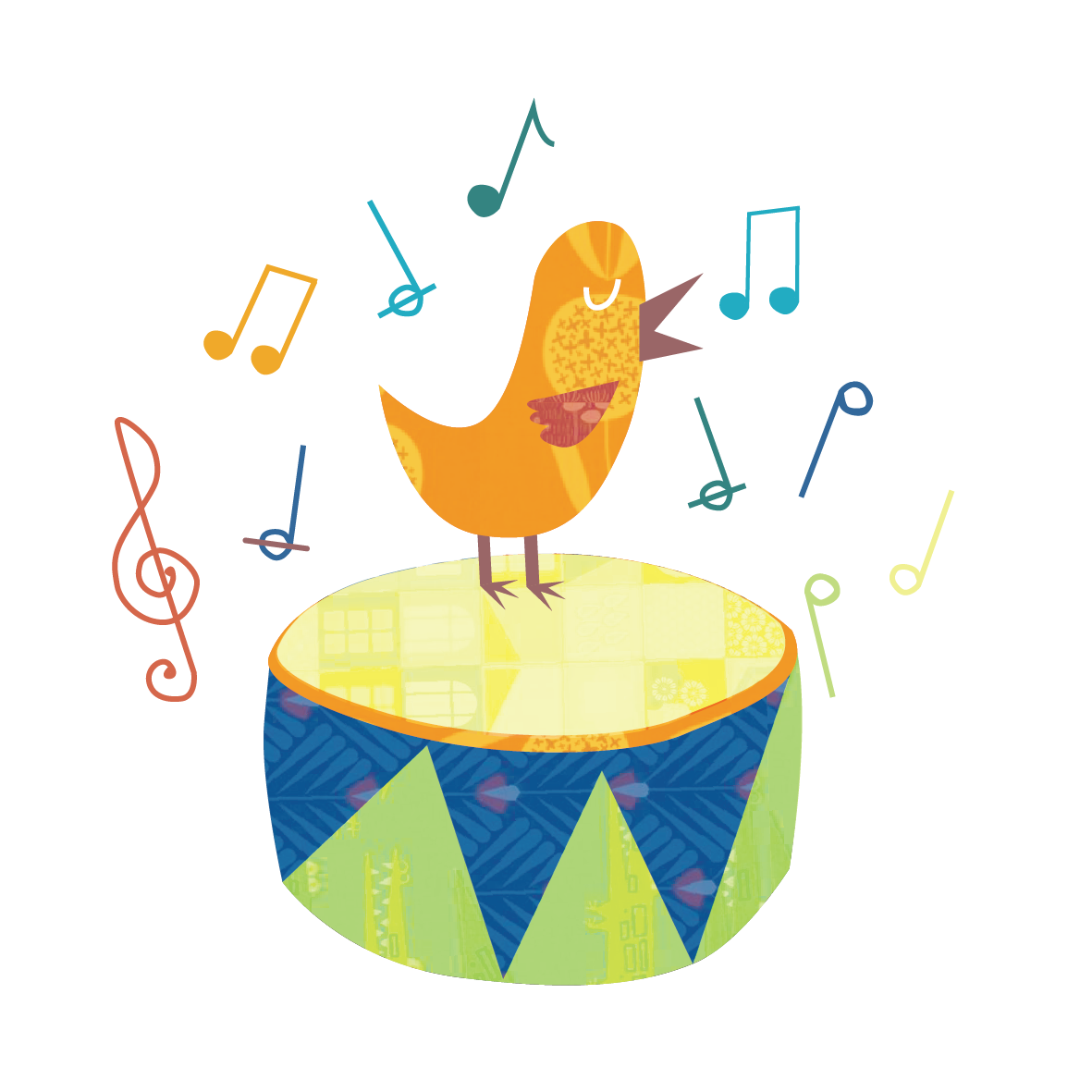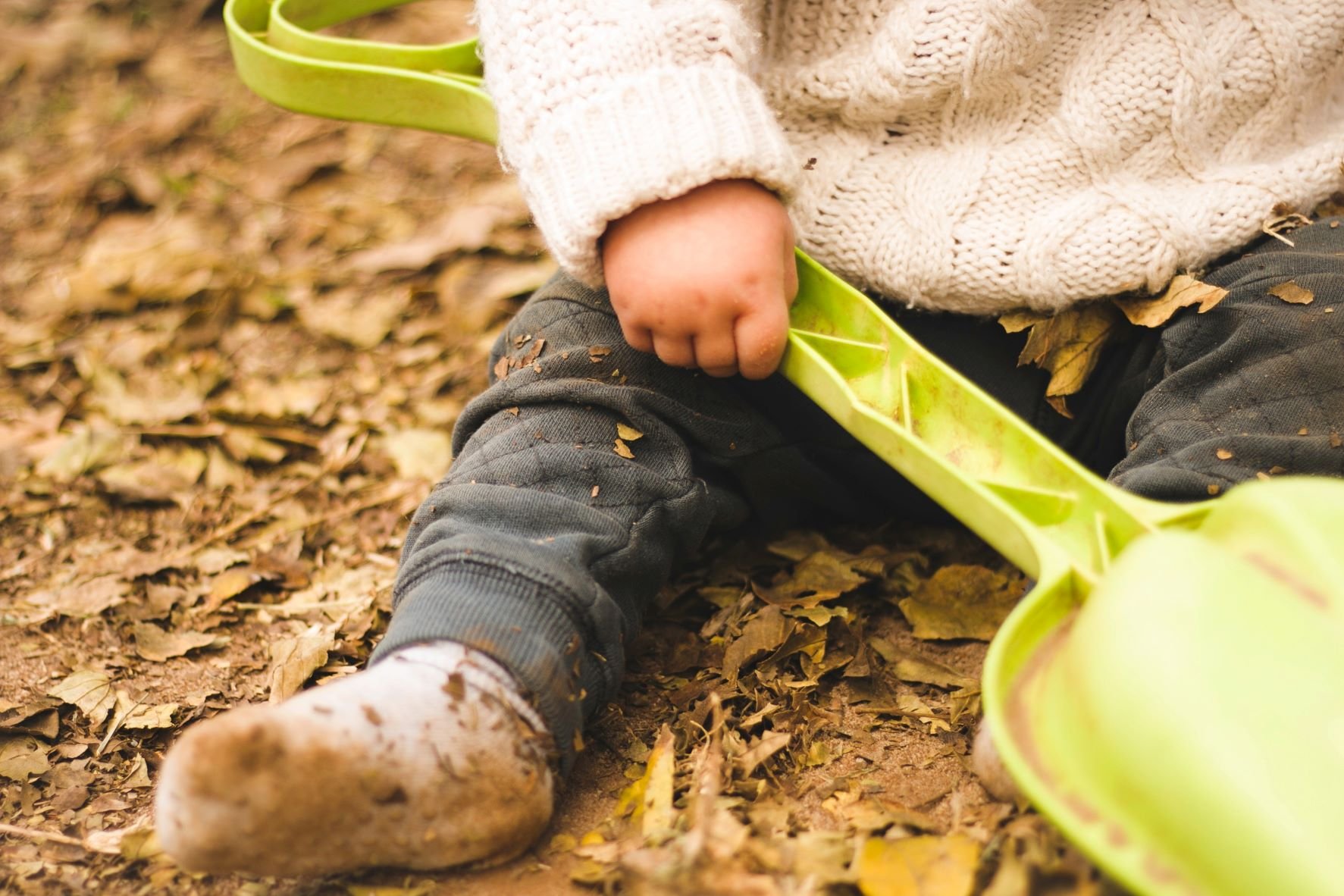The Risks of Neglecting Music in Early Learning
Music making is immensely beneficial to children as part of their early childhood development. It’s been proven by a multitude of studies too great to list here.
The more we learn, the more we understand the importance of music education in early childhood.
Yet music making is still pushed to the side or treated as an afterthought in far too many early childhood education (ECE) settings.
This neglect leads to huge missed opportunities. So let’s delve into why we keep missing the mark on music education in early childhood settings, the consequences, and what we can do about it.
The Importance of Music in Early Childhood Education
There’s enough evidence out there now for us to be able to confidently sing it from the rooftops:
Music making benefits just about every area of early childhood development.
It can help with the development of:
Language skills
Verbal memory
Spatial reasoning
Self regulation
Executive functioning
Problem solving skills
Social skills
…… And more. Phew!
A big longitudinal study of more than 3,000 Australian children found that those who participated in shared music making at 3 years old were better prepared for school-related experiences at 5 years old.
It’s enough to make us think (*know*) that music making can be a potent teaching tool for early childhood educators.
Yet all this data rarely translates into a music-rich curriculum in early learning settings.
I’ve done some digging in the academic nooks and crannies of early childhood education. Here’s what the researchers have to say.
Why We’re Not Making the Most of Music in Early Learning Classrooms
Given all the amazing brain-changing benefits of music, why is music rarely assigned much importance in our early childhood settings?
Much of that has to do with a lack of musical education in our early childhood education (ECE) training programs — which means early childhood educators go into the classroom not at all prepared to integrate music into the curriculum.
So let’s dive a little deeper into those two factors.
1.
Most Early Childhood Educators
Feel Awkward Making Music
Would you want to make a song and dance if you don’t know much about songs or dances?
The answer is probably a resounding NO!
And yet a decent chunk of Australian early childhood educators have never been immersed in music making before they’re thrown into the classroom.
One survey found that almost 50% of Australian kindergarten teachers had never had any kind of experience in music making, whether that’s learning how to sing or play an instrument.
Of those with any musical experience, only a quarter had continued their musical practice. That means that we’ve got a huge proportion of Australian educators who are about as familiar with music making as they are with juggling bananas on top of Mount Everest.
It gets worse.
Because while plenty of educators have zero musical background BEFORE their training, they learn next to nothing about it when they gain their qualifications either.
Which brings us to the second factor…
2.
Early Childhood Educators
Aren’t Receiving the Musical Training They Need
In 1988, Aussie students studying early childhood education programs received about 72 hours of music education during a 4-year bachelor degree.
Today, that figure stands at 17 hours in total — at most!
For some, it’s 0 hours.
ZERO!
Even at 17 hours, it’s not nearly enough time to consolidate musical education for early childhood educators.
And it’s a trend that’s tracking around the globe. A chunk of international research on this topic has found that most countries fail to cover music education in ECE teacher training adequately.
Take Australia.
These days, professional qualifications in early childhood education (diplomas, certificates, etc) rarely cover music as a content area, let alone explore its value as a teaching or learning strategy.
Many ECE teacher preparation programs don’t include any music training at all. And for those that do, it’s often rolled into a more generalised ‘arts’ or ‘creativity’ subject.
On top of that, when music courses are available, early childhood educators complain that they are too short, too abstract, and all theory without any practical application.
It’s the kind of wishy-washy exposure that leaves educators feeling unprepared to burst into song or start shaking maracas in the classroom as an integrated teaching tool. And it has knock-on effects.
Teachers feel less confident in the classroom. Plus they underestimate the valuable role music making has in early childhood development. The ramifications for this in the early learning centre — and more importantly, on a child’s life-long learning and brain development — are huge.
So let’s take a look at them in turn.
The Consequences of Poor Musical Education
Among Early Childhood Educators
When teachers don’t have the appropriate level of preparation for music education,
everybody misses out — teachers and young children.
Consequence #1:
Teachers Miss Key Opportunities to Use Music Making to
Support All Areas of Early Childhood Development
When early childhood educators aren’t given proper musical preparation, they underestimate the importance of music for early childhood development. They assign music a secondary role, below other key learning areas like literacy and numeracy.
Music is added to the curriculum as an afterthought — which means it’s rarely allocated enough time,
nor is it holistically integrated within the children’s play.
We’ve seen that here in Australia, where many teachers consider music one of the least important learning areas — sometimes even unnecessary.
A 2019 survey of Australian early childhood educators revealed a lot about attitudes towards music making in the workforce.
Most educators saw music as:
A fun and creative outlet
A tool for social inclusion and self expression
A way to build self esteem and confidence
Aaaaaaaand that’s where it ended.
Few educators understood how music education might contribute to a child’s overall learning or how music skills could be transferred to other areas of early childhood development.
Because of these prevailing attitudes, most early childhood settings don’t do music justice. Educators treat it as just a fun bit of child’s play, completely missing out on the greater brain changing benefits of music making.
Consequence #2:
Teachers’ Confidence Takes a Hit
A funny thing happens when teachers are skilled and knowledgeable about music making for early childhood.
Their confidence goes up. Not just in music making but in their overall abilities in the classroom.
Consider this 2008 study. It looked at third year students in a childhood teacher education program.
These students undertook a course to learn about musical concepts and their practical application in the classroom.
They saw significant improvements in their musical knowledge and skills — no surprises there. But they also developed positive attitudes towards musical integration AND their confidence in teaching children across age groups went up.
You read that right.
It’s not just confidence that takes a hit.
Teachers with little musical preparation often feel self conscious to the point of severe insecurity or anxiety when it comes to music making in the classroom. And naturally, this affects their overall morale at work.
Consequence #3:
Teachers Resort to ‘Convenient’ Music Making — Music Making That Suits THEM, Not the Children or the Curriculum
By now it should be clear that many ECE teachers don’t have basic instrumental skills or knowledge of musical theory.
That translates into a lack of confidence — and even anxiety or discomfort when they make music.
So they make music that is comfortable to them.
They resort to musical activities that support their own musical strengths at the expense of a child’s learning or the objectives of the curriculum.
Music making in the classroom becomes teacher-centred rather than child-led, missing out on key opportunities to support early childhood development.
Consequence #4:
The Children Miss Out on the Benefits of Music Making
Poor attitudes and low confidence translates into lackluster music making.
And who’s hurt the most by that? The children.
The early years are the best time to acquire and develop musical competencies (singing in tune, a sense of beat and rhythm, listening skills) and the cognitive functions required for music (things like self-regulation and executive function).
But when adults aren’t skilled or confident enough to make music, they reduce it to an insignificant portion of the day and the children end up with limited and superficial exposure to musical experiences.
All those delicious benefits of music making on early childhood development that we explored? They’re lost.
And the early learning setting has missed a key opportunity to support balanced early childhood development through integrated music making.
It’s Time to Whole-Heartedly Embrace Music Making!
The way many early learning settings undervalue music making means young children are missing out on a heap of benefits and positive learning outcomes associated with music education.
But the good news is that early learning settings can change this.
To begin with, educators want to change!
According to a 2022 study, most early childhood educators are aware of their knowledge deficit and are keen to improve their musical skills, their knowledge of basic music theory, and their ability to integrate music with other learning areas.
It’s a good place to start.
Fortunately, we have early childhood music education resources to kick things off.
Early Childhood Music Education Resources to Ignite Your Educators’ Music Making Confidence
Good music making in the classroom is sustained, integrated, active and child-led.
That’s the kind of music making we teach in our online Music Making Made Easy PD and in-person music education PD workshops
Our music education PDs provide ECE teachers with relevant, practical lessons and activities that can be embedded in their work.
And they get to the heart of the brain changing goodness of music education in early childhood development — it’s music making backed by neuroscience.
Our online early childhood music PD can be used flexibly and at your educators’ convenience. You’ll have lifetime access to train up new educators while your current educators can dive in and out for fresh inspiration and reminders.



